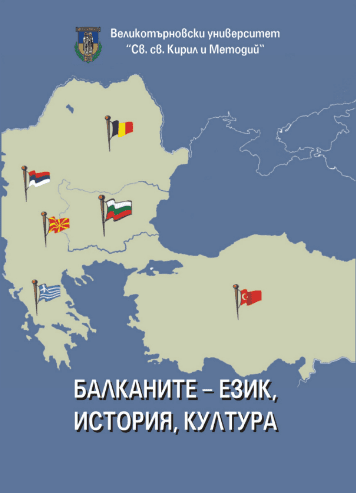The Paulicians
The Paulicians
Author(s): Canan SeyfeliSubject(s): Christian Theology and Religion, History, History of Church(es), Middle Ages, Theology and Religion, 6th to 12th Centuries, Biblical studies, Eastern Orthodoxy, Other Christian Denominations, History of Religion
Published by: Великотърновски университет „Св. св. Кирил и Методий”
Keywords: Paulicians; Orthodox Christianity; doctrine; movement; heretical
Summary/Abstract: The subject of the present study is the Paulicians. With their native homeland in Anatolia and different Christian doctrine, the Paulicians were a purely underground movement, influential in the 7th-12th centuries. Perceived as heretical by Orthodox Christianity, they were forced to act secretly. However, they were influential in Byzantium and the Orthodox Church when they were strong. Orthodox and Armenians were responsible for their disappearance in Anatolia, which led to the emergence of different doctrines and movements in the following centuries and their spread in the Balkans. Constantinos, the Paulicians’ first leader, was pronounced a didaskalos in 655. In the first half of the 9th century, divided into two, the movement lost its power in Anatolia. Constantinos and later leaders identified themselves as Christians. The Paulician doctrine accepts some texts from the New Testament, but they interpret the Scriptures, Jesus Christ, and rituals such as baptism and evharistiya differently from Orthodox Christians. Although often associated with dualist doctrines, neither their form of organization nor their orders and prohibitions are similar to the dualist ones. Their association with Christianity is based on more detailed data; however, they have different ideas about central issues, such as the Trinity and the position of Jesus Christ as God. The Paulicians adopted a significant number of New Testament texts, especially the Gospels and the Epistles of Paul. Thus they adopted a new interpretation of Christianity, which, combined with their belief that deviated from the primary religious admissions, led to a negative perception. Due to their different interpretations, they were declared heretical by the Armenian Church in the east and the Orthodox Church, and the Catholic Church in the west. As a result, they were persecuted and forced to migrate or go underground; thus, the inauthentic information about them increased. Since there are no Paulicians living today, there is no way to study the subject in its own reality.
Journal: Балканите – език, история, култура
- Issue Year: 7/2021
- Issue No: 1
- Page Range: 73-101
- Page Count: 29
- Language: English

